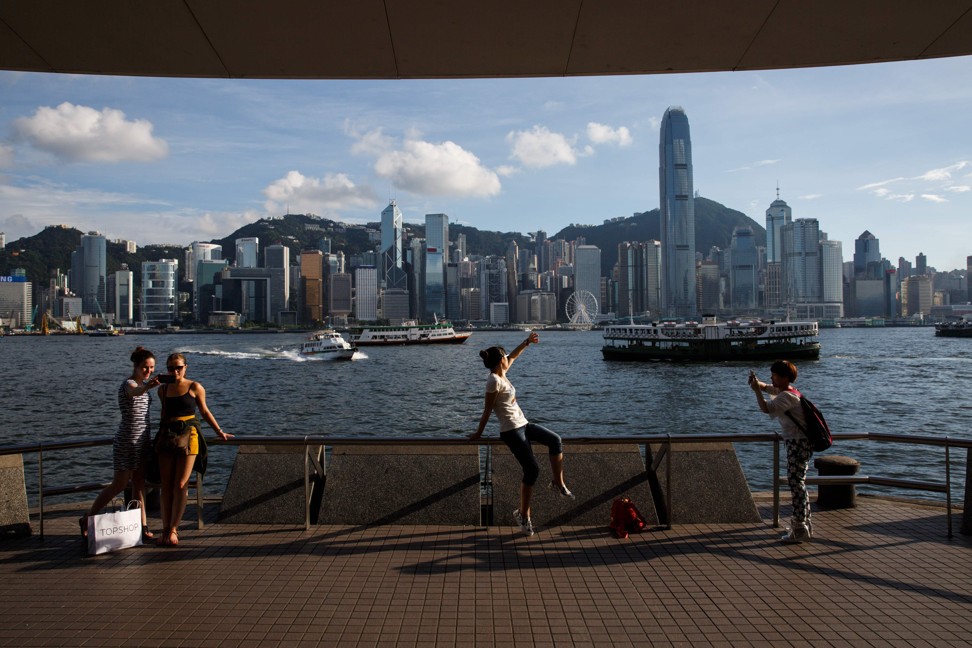
Hong Kong must play to its core strengths for another 20 years of world-beating prosperity
Tara Joseph says Hong Kong’s competitive edge stems from its rule of law and transparency, as well as unique links with mainland China. If allowed to thrive, these would provide great momentum for the next two decades

20th anniversary of Hong Kong handover: a look back at 1997 in pictures
Throughout the fanfare, conversations across Hong Kong will be sprinkled with a strong dose of memory sharing and forecasts. After years of searching for its identity, amid an economic downturn and a few jarring diplomatic incidents, some people are concerned that Hong Kong has lost its edge: its famed dynamism. Most worrying is a seemingly creeping but growing sense that the city risks losing its well-earned global reputation.
On the face of it, these concerns seem overblown. There is no denying the considerable challenges ahead, but there is equally no doubt that Hong Kong’s core strengths provide a strong momentum going forward if they are upheld.
China’s emergence on the global stage has had the biggest impact on Hong Kong
For its small size and population, Hong Kong packs a hefty economic punch. As a major financial centre, it is home to one of the world’s biggest and healthiest stock markets. It holds the honour of being the world’s No 2 recipient of foreign direct investment inflows and plays a leading role in China’s outbound investment.
Thousands of international companies have regional offices or Asian corporate headquarters in Hong Kong. More than 800 American firms have their regional headquarters in the city, a significant jump from 457 in 1997.
Hong Kong’s path to becoming a global and trade powerhouse has been steady but uneven, based on world events.
But it is China’s emergence on the global stage that has had the biggest impact on Hong Kong in the past two decades, probably even bigger than what the British and Chinese architects of the Joint Declaration imagined.

Three years after the Hong Kong SAR was established, US Congress voted to extend “permanent normal trade relations” with China, paving the way for China’s accession to the World Trade Organisation in 2001, which dramatically changed the course of global trade and Hong Kong’s role as a gateway city to mainland China.
Before the 1990s, only a dozen Chinese companies had a direct physical presence in Hong Kong. Now, the number of mainland Chinese companies here has skyrocketed – to more than 10,000.
Cross-border transport links have also mushroomed. And Hong Kong companies have employed several million people as manufacturing surged in neighbouring Guangdong province.
The past two decades have shown how Hong Kong’s unique framework of “one country, two systems” has contributed to China’s development and modernisation. The city’s success – based on its rule of law, openness and transparency – has had an indirect but important role to play in China’s success.
Hong Kong thrives because of its unique ‘one country, two systems’ framework and its high degree of autonomy
Now, as the Hong Kong SAR turns 20, people have started to adjust to the reality of a globally connected world. Despite headwinds in the mainland economy and a global financial crisis in 2008, China’s growing reach is considered part of the new normal.
A thriving China should be good news for Hong Kong. Yet, there are a few worrying trends that ought to be addressed if the city wants to maintain its lead in a competitive world.
Overarchingly, Hong Kong thrives because of its unique “one country, two systems” framework and its high degree of autonomy.
Its independent judiciary, strong corporate governance, data protection, free flow of information, as well as its rich “East meets West” culture, are standout features that attract both people and companies. Any erosion, or even fear of erosion, of those values could sap the city’s strengths.
With high-level initiatives such as the “belt and road” and the Asian Infrastructure Investment Bank, China has spearheaded fresh ideas for international business collaboration. Hong Kong’s super-connector role, with strengths in professional services, could add to another facet of the city’s contribution to China’s economic development. However, Hong Kong cannot help if its fundamental differences are not recognised.
Rising costs are another pressing concern in a world where multinational companies are increasingly cost conscious and competitive. Today, companies think twice before posting foreign executives to Hong Kong due to sky-high office rents, housing and education costs.
Hong Kong’s record office rents drive more firms out of Central to outer suburbs
Convincing international companies to stay in Hong Kong based on affordability would require a fresh approach by the incoming government. This could include tax incentives for firms that set up their Asian headquarters in Hong Kong.
Finally, Hong Kong has long been known for having one of the most efficient labour pools on the planet. But the skills required for the workforce of the 21st century are different from those that brought Hong Kong’s early successes in trade and logistics, which played to local strengths.
At each juncture, there have been naysayers and pessimists, and the present is no different
Over and over again, executives mention that Hong Kong’s younger generation of workers is falling behind other major centres in key skill sets, such as mastery of technology and innovative thinking.
Executives across international firms and visitors to Hong Kong also bemoan the steadily declining standard of English. Hong Kong’s workforce has an abundance of talent, but it is selling itself short without these crucial skills for a super-connector city.
American Chamber of Commerce leaders and hundreds of US residents have time and again witnessed Hong Kong’s resilience in the face of phenomenal change and uncertainty. Many have lived here most of their working lives, with deep ties to the community and a passion for Hong Kong to succeed.
At each juncture, there have also been naysayers and pessimists, and the present is no different.
There is no denying the considerable challenges that Hong Kong faces, but there is equally no doubt that Hong Kong’s core strengths, if allowed to thrive, provide us with enormously strong momentum for the next two decades.
Tara Joseph is president of the American Chamber of Commerce in Hong Kong


